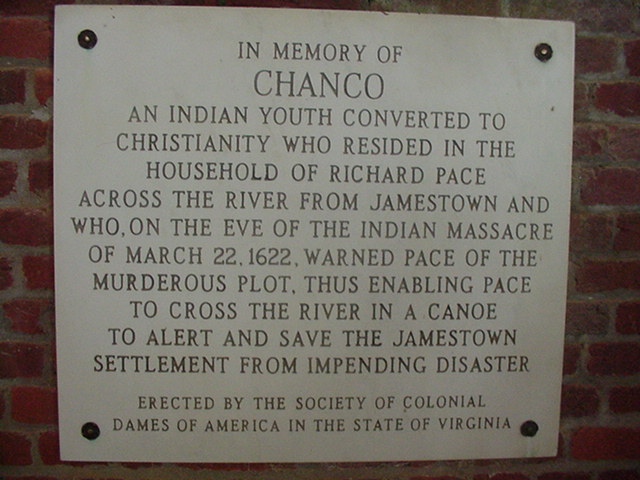Most of you probably looked at the name in the title above and said, “Who is that?” Character is not found only among the well known; it appears in those we might call “the common man” as well.
I call Chanco an example of American character even though he was not one of the early English settlers. Rather, he was a native American, one already living here when the English arrived.
The backdrop: Jamestown was 15 years young in 1622. It finally seemed to be thriving, and relations with the natives appeared to be improving. Yet the chief of the Powhatan tribe had devised a scheme whereby his men would rise up against the English at a prescribed time and kill them all. On the morning of March 22, his plot was carried out. It was not as successful as he had hoped. Why not? Because of Chanco.
If you ever go to the original site of Jamestown and go into the church that is erected there, you can view a plaque on the wall that says:
Thus, a native who had heard the Christian message of salvation and believed, did what his faith required of him. This is pretty good evidence that Chanco had truly internalized the message and not merely nodded in agreement with certain doctrines. He was willing to turn away from his own tribe and family to warn the “outsiders” of the threat. True Christian faith doesn’t divide people into “tribes,” whether they are ethnic or racial. Instead, it recognizes that God is the God of all.
So here’s to Chanco, a native American Christian who appears briefly in American history and then disappears, but who teaches us all a valuable lesson.

